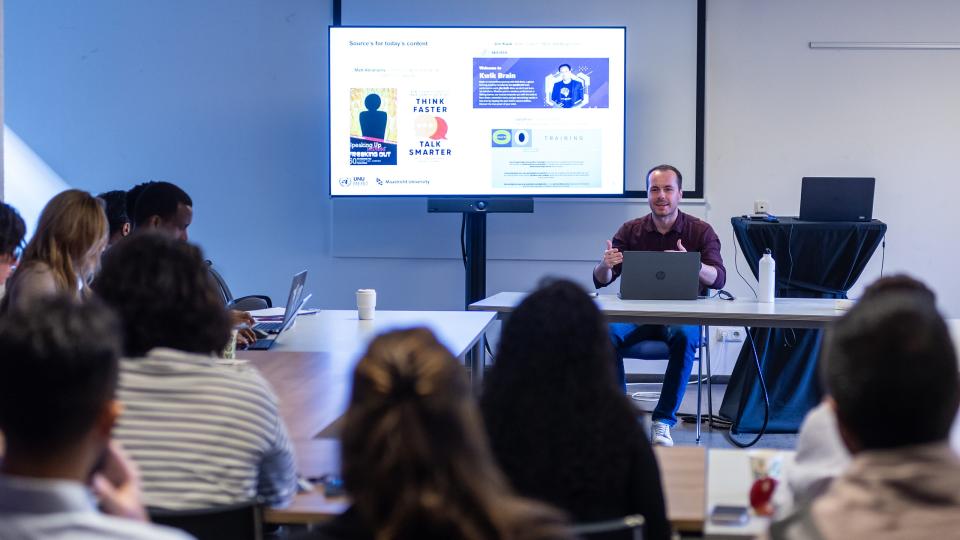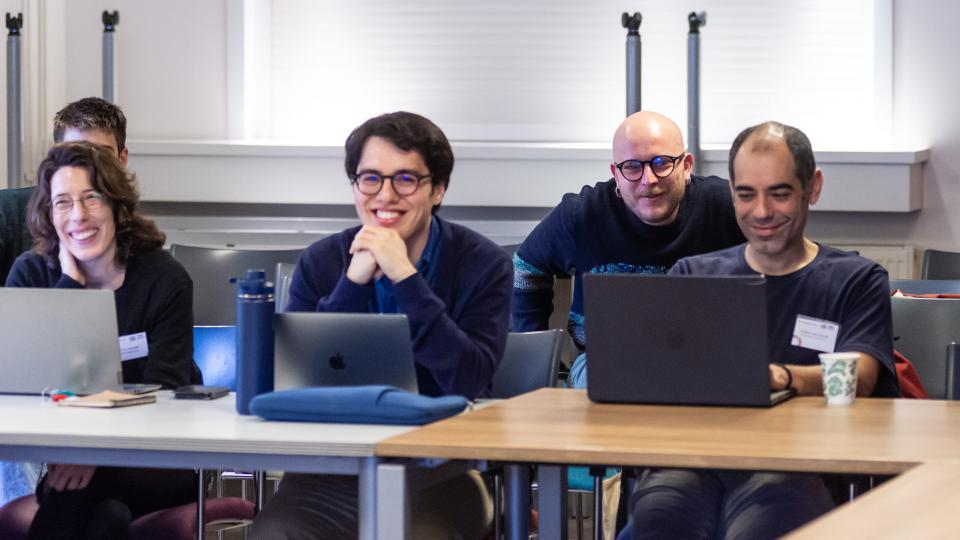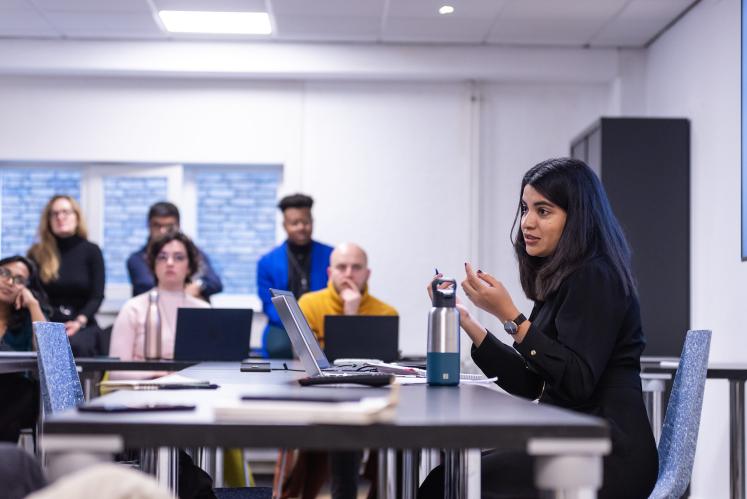Each year in March, UNU-MERIT’s PhD Office organizes a week-long event known as Research Week, offering a dedicated time for PhD fellows to focus on their research and connect with peers. But what exactly does the Research Week entail, and how does it benefit the institute as a whole? Basking in the afterglow of this year's edition (18 – 22 March), our PhD Office team - comprised of Micheline Goedhuys, Hampton Wong, Julia Walczyk and Soha Youssef - share their thoughts on what makes this annual occasion so special.
Supporting PhD fellows in their research development
The Research Week provides a dedicated space for PhD fellows to immerse themselves in their research; to support this process, our PhD Office team curates various workshops and sessions on research skills and methodology, tailored to different stages of the PhD journey. Additionally, all fellows have the opportunity to present their work in a conference setting and receive constructive feedback from their supervisors, peers and other academics. This exchange is crucial for identifying areas for improvement and propelling their research forward.
One of the key strengths of the Research Week is its ability to bridge the gap between our full-time (FT) and dual career (DC) PhD fellows, since our DC fellows reside and work outside of Maastricht (mostly in other countries) and cannot come to the institute very often. We recognize the unique needs of DC fellows, and design specific training sessions to address their demands. This residential period allows them to maximize their research growth through focused work and facilitated meetings with their supervisors. Furthermore, the PhD events provide a dedicated opportunity for them to connect with the UNU-MERIT community, interact with our FT PhD fellows and academic staff, and feel fully integrated in the institute. Fellows also have the opportunity to discover new research being conducted in their field, potentially sparking fresh ideas for their own work.
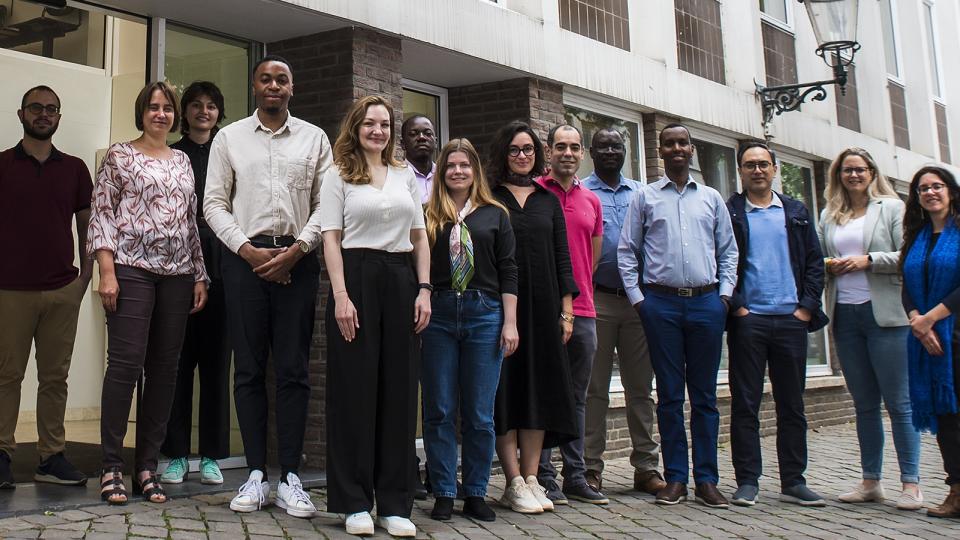
A group of our current dual career PhD fellows, photographed in March 2024 together with members of our Capacity Development Office team.
Benefits that go beyond individual PhD trajectories
The PhD programme counts more than 100 fellows altogether, and adding to this number the PhD supervisors and some interested master’s students, our PhD events reach a scale at which they start to function as a dynamic networking hub! Of course, a key benefit of such events – the most important of which are Research Week and the UNU-MERIT Internal Conference in September – is that PhD fellows in the UNU-MERIT community expand their academic network. But a highly unique feature of our programme is that twice a year, 30 to 50 DC fellows - often representatives from various UN and development agencies and academic institutes worldwide – all come to Maastricht. They bring to UNU-MERIT various tools, skills and knowledge from the organisations where they work, such as access to data sets that are collected by their employers. Several international organisations undertake systematic data collection efforts that are underutilised and interesting for research. This gives our resident staff the opportunity to work with original data. Our DC fellows further help us to develop ideas for setting up collaborative research projects between UNU-MERIT and their own organisations, or they provide us with firsthand job market knowledge and act as bridges for those interested in UN careers. Last September for example, our DC fellows Ari Perdana, Ilsa Meidina and Laisa Daza Obando held a career panel discussion about their experiences of working for multilateral development banks (you can read their key insights here).
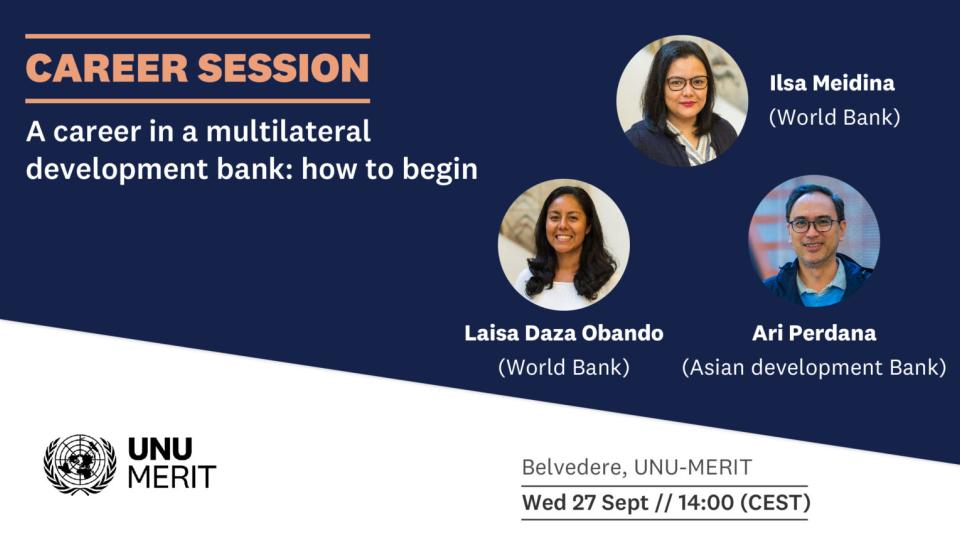
Contributing to the well-being of our PhD fellows
The Research Week isn't just about research itself; it's also about fostering a sense of community. The UNU-MERIT PhD Office plans social events throughout the Research Week, such as lunches, drinks, dinners, outings, and even sports activities. These informal gatherings provide a relaxed environment to build friendships with peers and get to know each other – a chance for our professionals to step back from their daily work routines and reconnect with the ‘student experience’. We also know that being able to share experiences with friends and colleagues is extremely important for one’s mental well-being during a PhD journey.
To conclude, UNU-MERIT's Research Week offers a comprehensive experience for PhD fellows. It allows fellows to develop their research skills, network with leading scholars, build a support network, access unique data and resources, and connect with fellow researchers. Our next major PhD event will be held on 23-27 September 2024. As part of this week, we will also be hosting the institute’s annual Internal Conference on 26-27 September. Keep an eye on our UNU-MERIT website and social media channels, as we’ll be sharing more details about this exciting event soon!
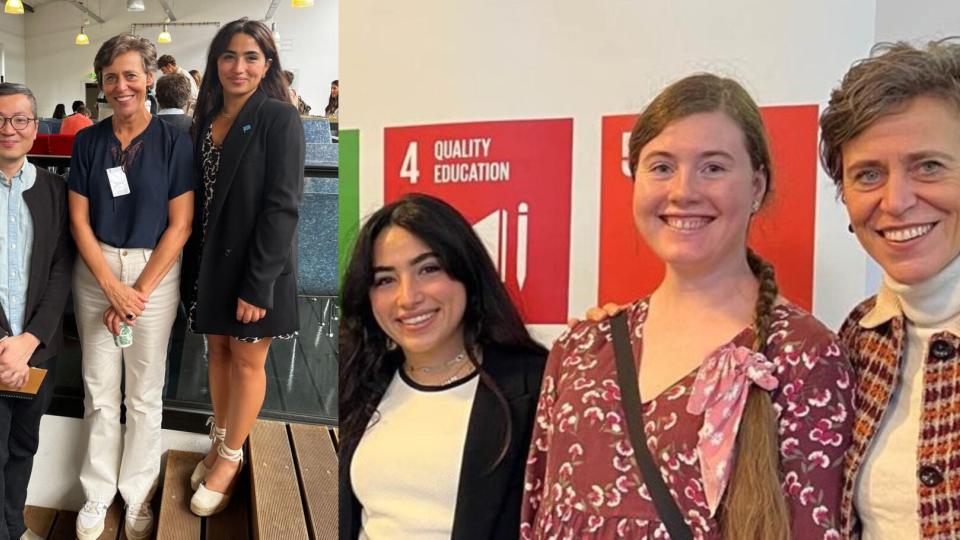
The PhD Office team. Photo on left: Hampton Wong, Micheline Goedhuys and Soha Youssef. Photo on right: Julia Walczyk in centre
